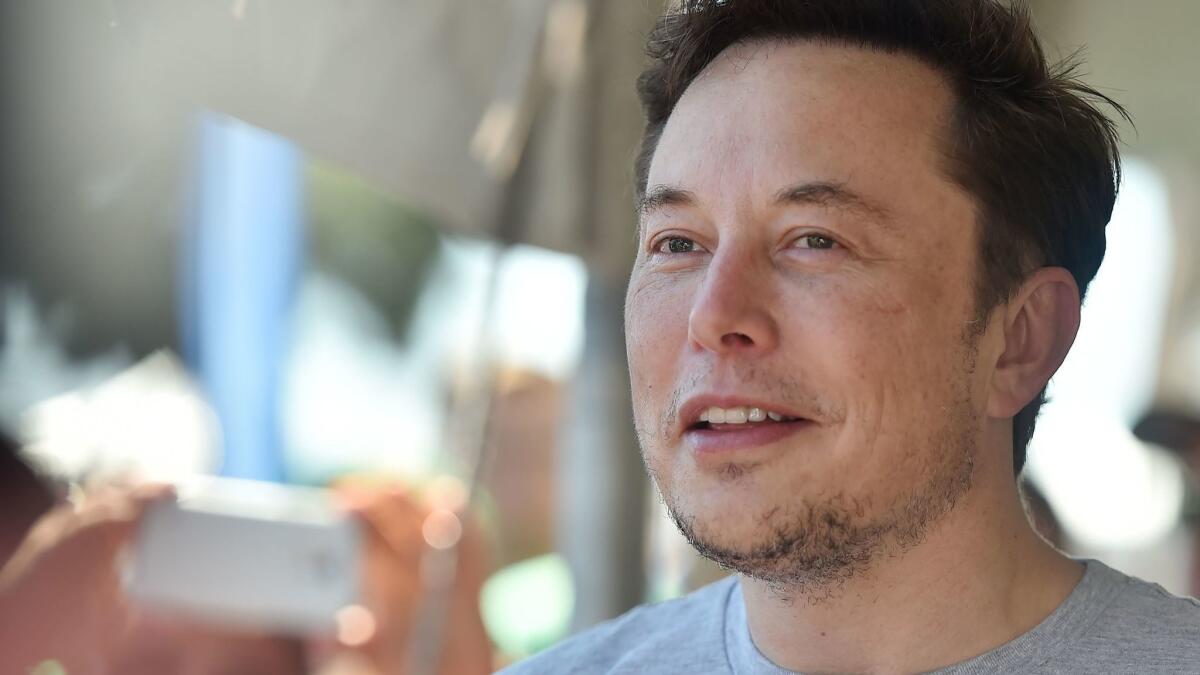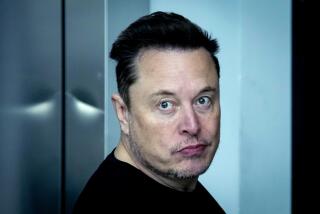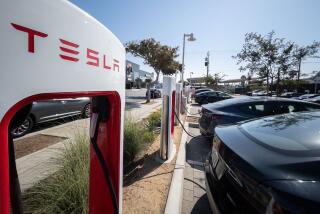A corner of the bond market shows how Tesla could win even if Musk’s new plan flops

Investors in an arcane corner of the bond market are latching on to one important detail lost amid all the chaos surrounding Elon Musk’s bombshell Tuesday: Even if he ultimately fails in his effort to take Tesla Inc. private, the company could win much-needed debt relief.
That’s because more than a third of the company’s approximately $11.5-billion debt was issued as convertible bonds — securities that creditors can exchange for equity if the stock reaches a certain price level. Coaxing investors to take equity, instead of demanding repayment on the money they’re owed, would help ease the financial pressure on a company that’s burned through more than $600 million in six of the last seven quarters.
One of the most imminent of these bond maturities — a $920-million note due in March — has a conversion price of $359.87 per share. The stock was priced about $18 below that level at the start of trading Tuesday before Musk began tweeting. And within minutes, it had surpassed it.
“They want you to ask for the stock and not for your cash back,” when holders have a choice upon maturity, assuming the stock is trading above the conversion price, said Chris Hartman, a senior portfolio manager at Aegon Asset Management. “They might not have the cash on the balance sheet to pay you back. They need that cash for working capital needs.”
It could be a huge relief for Tesla, which has drawn skeptics from far and wide that doubt the company’s ability to handle production costs and upcoming debt maturities without an additional capital raise. But should the stock sustain its momentum by the time those maturities come due, holders will be clearly incentivized to convert to equity, which would take Tesla off the hook to pay billions of dollars in principal back to bondholders, Hartman said.
It’s in Tesla’s interest to see the bonds, which pay a coupon, eventually converted to equity, which pays no dividend. That’s not to say that the company necessarily wants holders to convert early, nor is it in investors’ interest to do so — the way that the 0.25% bond is currently trading, for example, suggests that there’s more value to hold the security now compared to the underlying stock if it’s converted, Hartman said.
Representatives for Palo Alto-based Tesla declined to comment.
Musk said last week there’s no need for Tesla to raise more equity, as he expects the company to generate positive free cash flow in the second half of this year. That, he said, will help repay — not refinance — the convertible debt maturity early next year. But analysts still see a capital raise as necessary, and wonder how going private at an $82-billion valuation would materialize.
Musk said in his tweet that the funding was “secured,” but did not elaborate on where it would come from. The stock fell Wednesday in New York as skepticism grew. No bank or investment fund contacted by Bloomberg News thus far has indicated it was aware of Musk’s plan to finance a Tesla buyout.
“Show us the terms, show us some details,” said John McClain, a portfolio manager who helps oversee $21 billion in assets at Diamond Hill Capital Management. “It smacks of desperation.”






